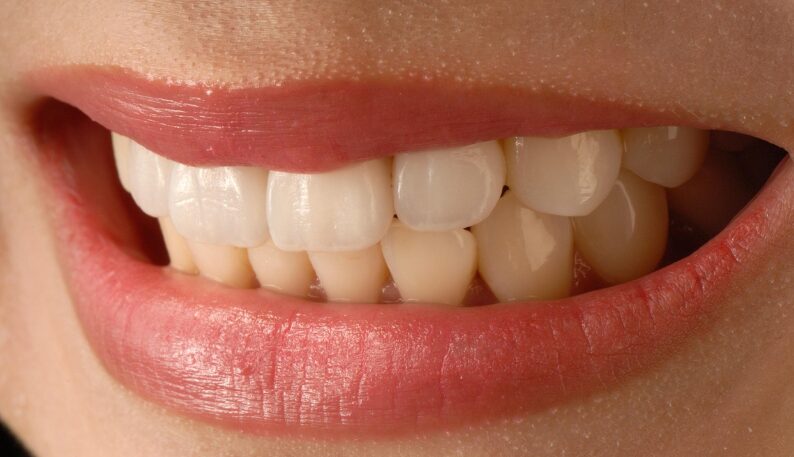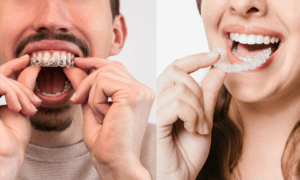Sugar is one of the biggest culprits when it comes to oral health problems. From cavities to gum disease, excessive sugar consumption can wreak havoc on your teeth if left unchecked. Understanding how sugar affects your teeth and taking proactive steps to protect your oral health can make a significant difference. If you’re looking for professional guidance on maintaining a healthy smile, Guelph Village Dental can help. In the meantime, here’s what you need to know about sugar and your teeth.
How Does Sugar Harm Your Teeth?
Sugar itself doesn’t directly damage your teeth, but it plays a significant role in tooth decay. The real issue arises when sugar interacts with bacteria in your mouth. When you consume sugary foods and drinks, bacteria feed on the sugar and produce acid as a byproduct. This acid weakens and erodes tooth enamel, leading to cavities.
Over time, repeated exposure to sugar and acid can cause permanent damage to your teeth. If not treated, cavities can grow larger, leading to pain, infections, and even tooth loss. The more frequently you consume sugar, the higher the risk of developing tooth decay.
The Link Between Sugar and Gum Disease
In addition to cavities, excessive sugar consumption is also linked to gum disease. When plaque builds up along the gumline due to poor oral hygiene and a high-sugar diet, it can lead to gingivitis, the early stage of gum disease. Symptoms of gingivitis include swollen, red, and bleeding gums. If left untreated, it can progress to periodontitis, a more severe form of gum disease that can result in gum recession and tooth loss.
Gum disease is not only detrimental to your oral health but has also been linked to systemic health conditions such as diabetes and heart disease. Reducing sugar intake and maintaining good oral hygiene are essential steps in preventing gum disease.
Common Sources of Hidden Sugars
Many people are aware that candy and soda contain high amounts of sugar, but there are also hidden sources of sugar in everyday foods and beverages. Some of the most common hidden sources of sugar include:
- Fruit juices and flavored yogurt
- Energy drinks and sports drinks
- Breakfast cereals and granola bars
- Processed snacks and baked goods
- Condiments like ketchup and salad dressings
Even seemingly healthy options, such as smoothies and dried fruits, can contain high levels of sugar. Being mindful of your diet and reading ingredient labels can help you identify hidden sugars and make better choices.
How to Protect Your Teeth from Sugar Damage
While cutting out sugar entirely may not be realistic, there are steps you can take to minimize its impact on your teeth and overall oral health.
1. Practice Good Oral Hygiene
Brushing your teeth twice a day with fluoride toothpaste helps remove plaque and strengthens tooth enamel. Flossing daily removes food particles and bacteria from between your teeth, reducing the risk of cavities and gum disease. Using an antibacterial mouthwash can also help control bacterial growth.
2. Limit Sugary Snacks and Beverages
Reducing the frequency of sugar consumption is key to preventing cavities. Instead of snacking on sugary treats throughout the day, try to consume them during mealtimes. The increased saliva production during meals helps neutralize acids and wash away sugar more effectively.
3. Drink Plenty of Water
Water is one of the best drinks for maintaining oral health. It helps wash away food particles and bacteria, reducing the risk of plaque buildup. Drinking fluoridated water also strengthens tooth enamel, providing added protection against decay.
4. Choose Teeth-Friendly Snacks
Opt for snacks that are low in sugar and high in nutrients. Crunchy fruits and vegetables, such as apples, carrots, and celery, can help clean teeth naturally by stimulating saliva production. Dairy products like cheese and yogurt provide calcium and phosphates that strengthen teeth.
5. Visit Your Dentist Regularly
Routine dental check-ups and cleanings are essential for maintaining healthy teeth and gums. A professional cleaning at Guelph Village Dental can remove plaque and tartar buildup that you might miss at home. Your dentist can also identify early signs of tooth decay and gum disease, allowing for prompt treatment.
Sugar Substitutes: Are They a Better Option?
With growing awareness of the harmful effects of sugar, many people turn to sugar substitutes as an alternative. Artificial sweeteners like aspartame and sucralose, as well as natural alternatives like stevia and xylitol, are commonly used to replace sugar in foods and drinks.
Xylitol, in particular, has been shown to have dental benefits. It helps reduce the growth of harmful bacteria and can even promote remineralization of tooth enamel. However, while sugar substitutes may help reduce the risk of cavities, they should still be consumed in moderation.
Conclusion: Take Control of Your Oral Health
Sugar can have a detrimental impact on your teeth, but with proper care and mindful habits, you can protect your smile. Reducing sugar intake, maintaining good oral hygiene, and making regular visits to Guelph Village Dental are essential steps in preserving your oral health.
By making informed choices about your diet and dental care routine, you can prevent cavities, gum disease, and other dental problems. Take control of your oral health today and keep your smile healthy for years to come.



































